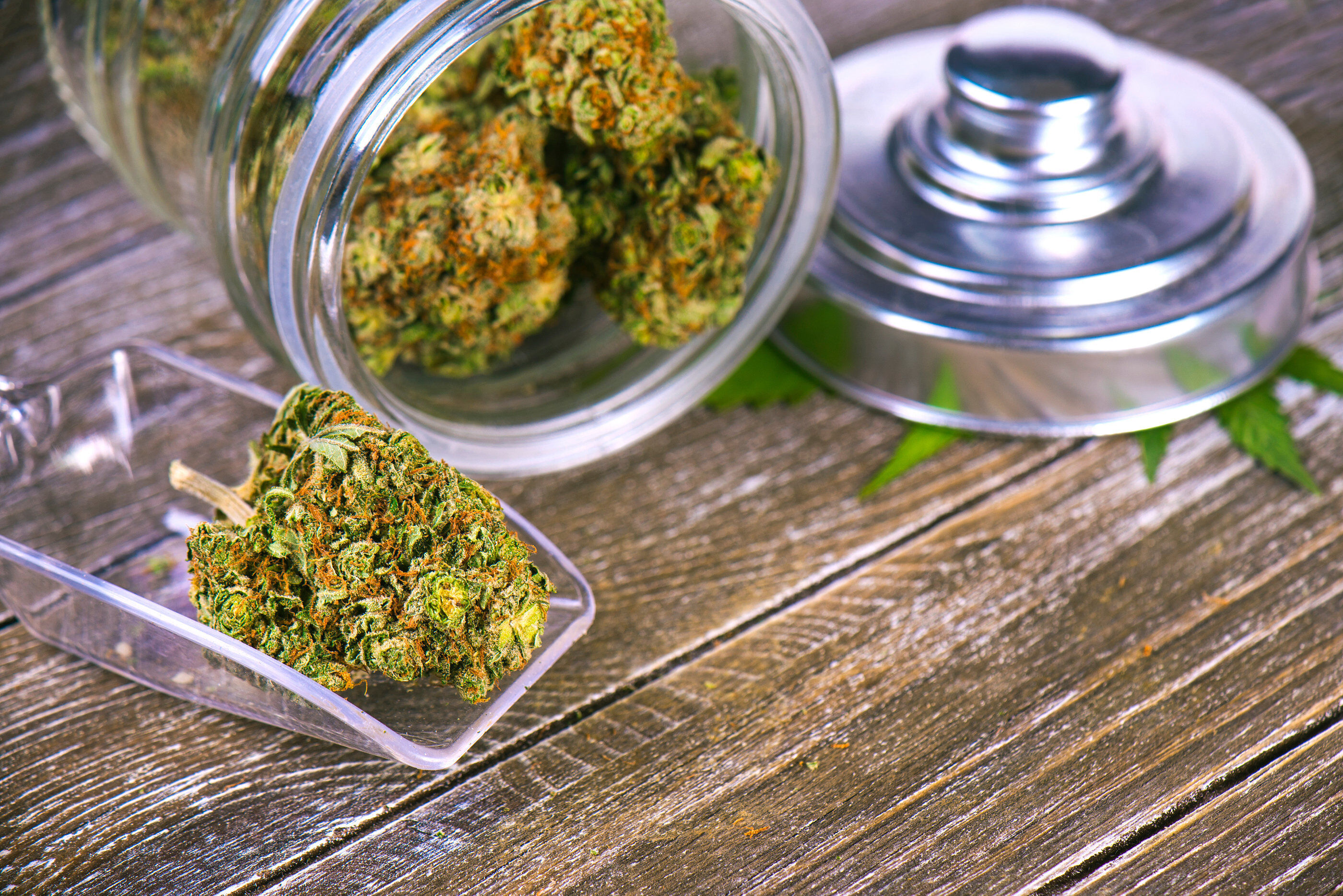Revisiting FSAs and medical marijuana

Not to start this article with bad puns, but one of the most burning questions our readers have every year is, "Why isn't medical marijuana FSA-eligible?" While a good portion of the country still considers marijuana an illegal substance, there's been a steady shift in state laws, allowing qualified patients to use medical marijuana for more-targeted purposes, such as pain relief.
What is medical marijuana?
In short, medical marijuana is marijuana. The same marijuana people have argued, fought, debated and sung chill jams about since the beginning of time. The "medical" part is nothing more than a way to distribute the product to users deemed eligible by a medical professional, to use it to treat and lessen the severity of disease symptoms.
And no, this isn't limited to the kind you smoke. It can also deliver the same effects through being inhaled or ingested in food, tea, pills or even oils. Depending on which state a person lives in, qualifying for this type of treatment requires meeting certain guidelines and having specific qualifying conditions.
In other words, you can't just show up at a licensed dispensary and complain about migraines. After thorough diagnosis, the most common conditions for which medical marijuana treatments are approved are Tourette's Syndrome, epilepsy or other seizures, multiple sclerosis, Crohn's disease, and the effects of ongoing cancer treatments.
Another look at medical marijuana in the U.S.
November 5, 1996 is a banner day for those who support the lifting of marijuana laws in the United States. That's the day California became the first state in the U.S. to legalize marijuana for medical use. Since then, similar laws have been passed in 29 states, plus the territories of Guam and Puerto Rico. However, marijuana possession and use is still illegal under federal law, and it's listed as a Schedule 1 drug.
That said, there's some serious variation in medical cannabis laws from state to state, including how it's produced and distributed, how it can be consumed, and what medical conditions it can be used for.
So, why isn't medical marijuana eligible?
At first glance, it seems that medical marijuana would be eligible for reimbursement from an FSA because it's often used to treat legitimate medical conditions. However, any procedure, service, or item that's illegal under any law in effect where it is purchased or used is ineligible for reimbursement from an FSA.
Despite some loosening restrictions across the nation, medical marijuana continues to be listed as a Schedule 1 drug under federal law. This means it's considered to have a high potential for abuse, and no legitimate medical use.
Wait...what?
Regardless of changing medical opinions, and approval for medical use in a growing number of states, marijuana continues to be illegal under federal law for any purpose, including medical needs.
This is all detailed in IRS Publication 502, which lists eligible medical and dental expenses for tax deductions and reimbursements, specifically states that marijuana is not eligible under the "Controlled Substances" section, claiming:
"You can't include in medical expenses amounts you pay for controlled substances (such as marijuana, laetrile, etc.) that aren't legal under federal law, even if such substances are legalized by state law."
Even if federal law changes to allow the use of medical marijuana, it would have to be dispensed in line with the different rules and regulations of each state.
For instance, New York allows medical marijuana only in 30-day, non-smoking batches, whereas states like Connecticut allow users to hold up to 2.5 ounces at a time. Some states have designated dispensaries -- the ONLY places people can legally purchase the product in those locations.
Therefore, because marijuana is illegal under federal law everywhere in the United States, unless major changes happen in the coming years, medical marijuana will remain ineligible for FSA reimbursement, regardless of how many state laws change to approve its use.
But there's hope for those seeking changes to these laws. The American Medical Association and American College of Physicians don't take a position on the legalization of medical cannabis, but have called for the Schedule 1 label to be reviewed. The American Academy of Family Physicians also doesn't take a position, but does support rescheduling in order to further research.
What about this CBD that's popping up everywhere?
In addition to states that have passed medical marijuana laws, a number of states have passed restrictive laws that limit the permitted concentration of tetrahydrocannabinol (THC), the main psychoactive component of cannabis.
The purpose of these laws is to allow for the use of cannabidiol (CBD), a non-psychoactive cannabinoid that's been shown to be effective in the treatment of seizure disorders, most notably in children. The use of cannabidiol to treat seizures gained increased attention with a number of media reports in 2012 and 2013, and by 2014 a number of states had enacted legislation to allow for its use.
But it all comes down to the source of the CBD. If it's derived from hemp, which has no psychoactive effects, the law doesn't seem to mind it. Hemp products are legal and available in all types of different industries across America. Marijuana, on the other hand, is a much different story. And this is why the source of a CBD product is crucial to its legal status in each state.
Long story short -- it's going to be a while before we even get to discussing the FSA eligibility of CBD. And for that matter, any product related to marijuana. But each day brings another update, so if you support the use of medical marijuana to alleviate medical conditions, take note of local activity and find the right way to support the cause.
-
Thank you for visiting the FSA Store Learning Center. Don’t forget to follow us for more helpful tips on Facebook, Instagram, and Twitter.



